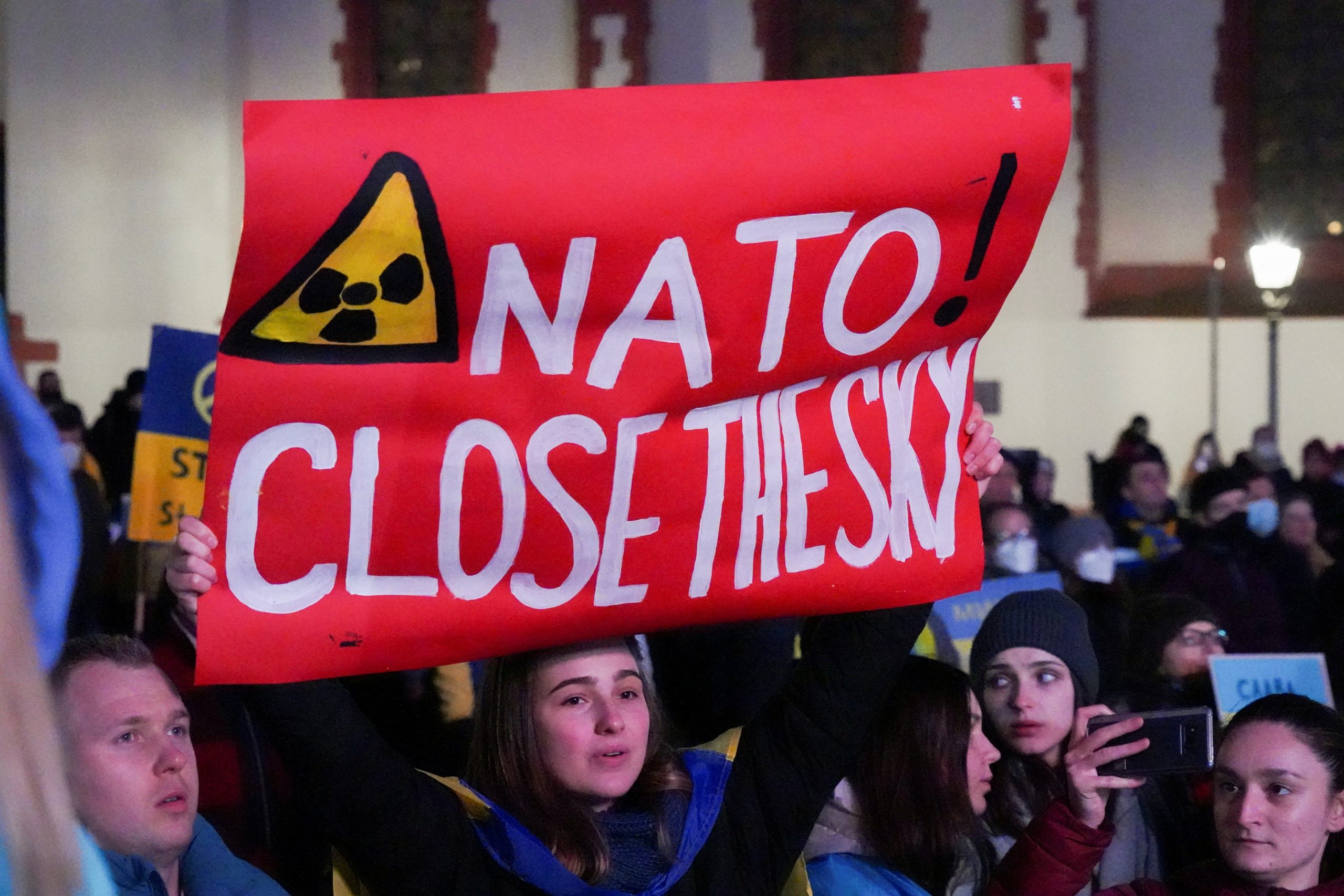
Matt Bush, FISM News
[elfsight_social_share_buttons id=”1″]
A recent Reuters poll showed Americans, regardless of political leaning, support both imposing a no-fly zone in Ukraine and a ban on the purchase of Russian oil. In both polls from Friday, the results were not close and enjoyed broad bipartisan agreement.
Here are the key results from the Reuters poll:
- 80% said the U.S. should stop buying Russian oil.
- 74% said that the U.S. and its allies should impose a no-fly zone over Ukraine.
- 77% said that the U.S. should seize the assets of Russian oligarchs associated with President Putin.
- 62% of respondents said that paying more for fuel and gas was worthwhile to defend another democratic country.
Americans and lawmakers have spoken clearly in their attempt to ban the purchase of Russian oil, but there is still hesitation from the White House. In the Senate, a bill sponsored by Republican Sen. Lisa Murkowski (Alaska) and Democratic Sen. Joe Manchin (W.Va.) that would ban the purchase of Russian oil is being fast-tracked. Sen. Lindsay Graham (R-S.C.) said of the bipartisan nature of the bill, “Vladimir Putin had done something nobody else could do in bringing them into alignment.”
The White House continues to proceed cautiously on discussions of the oil ban. On Friday, the White House said, “”We are looking at ways to reduce the import of Russian oil while also making sure that we are maintaining the global supply needs out there.” Biden seems to be hesitant to follow through on a ban as it would lead to an inevitable hike in gas prices, since he is already seen by many Americans to be responsible for soaring inflation numbers.
White House Press Secretary Jen Psaki on Thursday defended the fact that the Biden administration had still not banned Russian oil by saying, that “it’s only about 10% of what we’re importing.” She then said that the “focus is making sure that any step we take maximizes the impact on President Putin and minimizes it on the American people.”
Fox News’ @JacquiHeinrich: “As long as we're buying Russian oil though, aren't we financing the war?”
Jen Psaki: “Well Jacqui, again, it’s only about 10% of what we’re importing.”
10% is more than 0%. pic.twitter.com/P79k6KyrW1
— America Rising (@AmericaRising) March 3, 2022
Americans are, according to Reuters, by far the heaviest consumer of gasoline in the world thanks to big cars, long commutes, more household wealth, and less accessible public transportation than many other countries. Because of this reliance on oil, rising gas prices have been political poison to sitting presidents, regardless of the cause.
Overnight, the cost of a barrel of oil reached a 13-year high, topping $130 and has since settled to $116 a barrel. On top of that, the average price of a gallon of gas in America topped $4 for the first time in over a decade. An opinion piece from Bloomberg satirically compares the buying Russian oil to “getting punched in the face repeatedly by a bully and giving the bully energy bars so he can keep his strength up, for more punching.”
With midterm elections coming and Biden’s approval rating still hovering below 50%, a ban on Russian oil is complicated. It would significantly increase pressure on Russia to stop the invasion of Ukraine by cutting off important revenue streams, but it would also cause a potentially dramatic increase of prices at the pump. Legislators who are pushing for the ban have apparently counted the cost and believe the lives of the Ukranian people to be worth the economic consequences.
Many legislators, particularly on the right side of the aisle, are also pushing for Biden to open up restrictions on the American energy sector to increase U.S. production and decrease energy dependency.
The decision to impose a no-fly zone over Ukraine is equally, if not more complicated. The consequences of imposing the no-fly zone and having Russia send jets anyway would inevitably lead to fighting between NATO and Russian forces. Marco Rubio, Vice Chair of the Senate Select Committee on Intelligence, said that this action could lead to the “beginning of World War III.”
"Basically a no-fly zone, if people understood what it means, it means World War III," says @MarcoRubio. "It means starting World War III." https://t.co/5SwBfufch2 | @mediaite pic.twitter.com/A8kzzWkG33
— Caleb Howe (@CalebHowe) March 6, 2022
